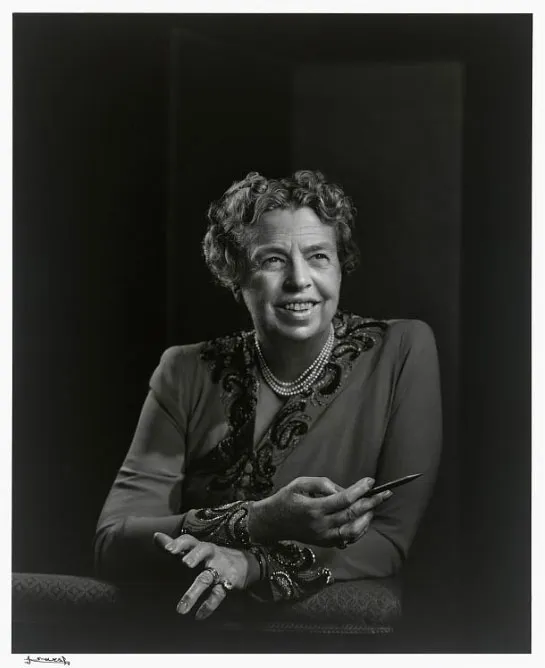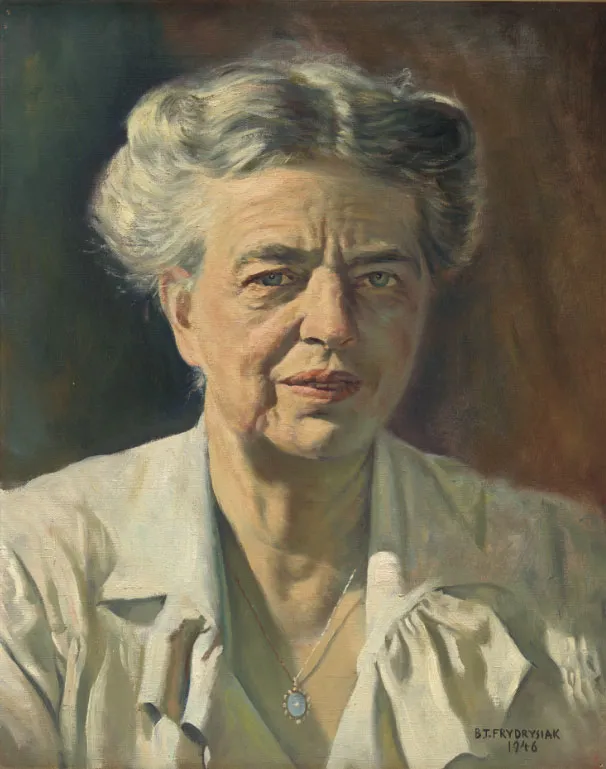First Lady of the World: Eleanor Roosevelt
We recognize the role of first lady as it exists today because of Eleanor Roosevelt. A compassionate and smart woman with an activist spirit, she was not content to just entertain others and serve her husband domestically. She was a public servant intent on sharing her voice with the world in order to do good.
:focal(322x296:323x297)/https://tf-cmsv2-smithsonianmag-media.s3.amazonaws.com/blogging/featured/2018-12-07_17_18_33-NPG_PC992501_Roosevelt_-_Windows_Photo_Viewer.png)
We recognize the role of first lady as it exists today because of Eleanor Roosevelt. A compassionate and smart woman with an activist spirit, she was not content to just entertain others and serve her husband domestically. She was a public servant intent on sharing her voice with the world in order to do good.
As young as 5 years old, Eleanor Roosevelt recalls volunteering, sometimes with her father serving Thanksgiving dinner or “dressing” the Christmas trees at the Post-graduate hospital with her grandmother. Around 1903, after Eleanor returned from Allenswood Girl’s Academy in London, she became a volunteer investigator for The Consumer’s League, a reform agency investigating poor labor conditions. She visited tenements and publicized the dangerous and unsanitary conditions of workers in New York City.

Only a few years later in 1905 she was married to distant cousin, Franklin Delano Roosevelt. She focused on her family life, raising her children with plenty of help from her very involved mother-in-law. In 1917 as the US entered World War I, women across America saw a change in their daily lives. For Eleanor Roosevelt, it meant she was able to return to volunteer work for the first time since she had been married. She volunteered with the Red Cross and visited wounded naval soldiers regularly.
When polio paralyzed her husband in 1921, Roosevelt gained even more autonomy. She became active while her husband went on a seven-year political hiatus. She led organizations such as the League of Women Voters, the Women’s Trade Union League, the Women’s City Club, and the Women‘s Division of the New York State Democratic Committee. During this time, she was also writing, lecturing and getting involved in radio broadcasting.

In 1933, she became First Lady of the United States and feared the change it would bring to her life. She did not care much for the formality of political life in Washington, DC. Immediately she begun to help those affected by the Great Depression. She held press conferences for only women reporters so that if big publishers wanted to feature news from the White House, they would need to employ women at their agencies. She was a civil rights activist and advocated for equality in the New Deal programs. In 1935, she started writing the newspaper column “My Day” which served as a platform for her to discuss politics and social issues throughout her life until 1962.
A year after her husband’s death in 1945, Eleanor Roosevelt became a delegate to the United Nations. She was instrumental in formulating the Universal Declaration of Human Rights and securing its ratification by the General Assembly in 1948. “We stand today at the threshold of a great event both in the life of the United Nations and in the life of mankind,” said Roosevelt to the General Assembly. “This declaration may well become the international Magna Carta for all men everywhere.”
Though no longer First Lady of the United States, she was called “First Lady of the World” by President Truman. Eleanor Roosevelt redefined what it means to be a leading lady and continued her commitment to humanitarian efforts throughout her life. See her portrait on view in the 20th Century Americans: 1930-1960 galleries as well as the exhibition Struggle for Justice.
